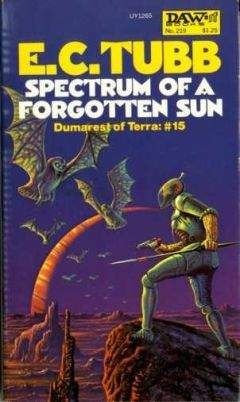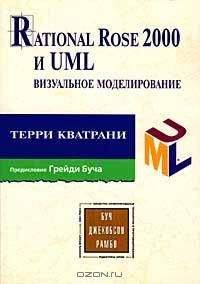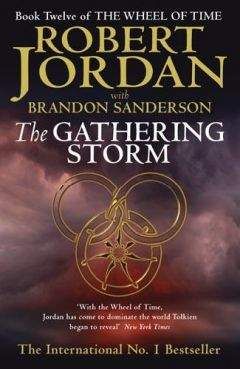A pride which crumpled as, tremulously, she said, "Earl! I need you! Please don't make me beg!"
"Need me for what?"
"For your strength, your courage, your skill. Because you are a man in every sense of the word. Because I am afraid."
"Afraid?"
She said, dully, "I belong to an old and honored family. One so steeped in tradition that it has become a way of life. Can you understand that? To live by a code which must not be broken. Of pride which can admit of no weakness. Of reputation which must be maintained no matter what the cost. I was a rebel and when the chance came to escape I took it. Since then I have done many things." Light glittered as she lifted her hands and looked at her nails. "Things which could be regarded as having sullied the good name of my House."
"So?"
"I want to go back, Earl. I want to go home. Yet how can I be sure of a welcome? I could be challenged-there is nothing so cruel as outraged pride. So you see why I need you. I must have a champion. A man to stand at my side and to shield me with his strength. Just for a while, Earl, until I am accepted, then you can go your own way if you want."
She had tended him and saved his life-he couldn't refuse.
"Very well, Dephine," he said. "I'll take you home."
Chapter Nine
Home was Emijar, a small world lying at the edge of a dust cloud, the solitary planet of a dying sun. From his balcony Dumarest studied it, looking at the distant loom of hills, the rolling swell of terrain. From below came the sound of voices and, leaning over the parapet, he could see small and colorful figures busy driving horned beasts from pasture into stalls for milking. Boys at their labors as the girls would be hard at work spinning and weaving. The children of the Family learning the essential disciplines of husbandry.
With his elbows leaning on the carved and weathered stone Dumarest examined the exterior of the house. It was a big, rambling structure which had grown over the years, yet the new additions had blended with the old adding to instead of detracting from the original conception. The tower in which he stood reared towards the sky, walls enclosed small courtyards and the thick, outer walls were topped with crenelations. A house which was a combination of farm and fortress. A building which had stretched to embrace generations of residents as it had expanded to contain the accumulation of centuries.
A place of dust and cobwebs, invisible, intangible, but there just the same.
Dumarest straightened and turned and stepped back into the room he had been given. It was shaped like a wedge, the floor of polished wood, the ceiling thick with massive beams, the walls softened by an arras of brightly decorated fabric. The bed was wide and covered with a quilt stuffed with feathers. A chest stood at its foot and a low table at its side held wine in a crystal decanter together with two goblets. The door was of solid wood, barred with metal straps and thick with the heads of nails.
A knock and it opened.
The man standing outside said, "My apologies if I have disturbed you. Am I permitted to enter?"
"Do so."
"You are most kind, Earl. I have neglected you, an unforgivable lapse, but I crave your indulgence. The excitement of Dephine's arrival-you understand?"
"I think so."
"To return after so many years!" The man made an expressive gesture. "An event which must be celebrated. Already word has been sent to all members of the Family. But I am remiss. You are comfortable? The room is to your liking? You have bathed?"
Dumarest nodded, studying his visitor. Hendaza de Monterale Keturah was Dephine's uncle, a man of late middle-age, his short, stocky body clothed in sombre fabrics, his tunic alone bright with the encrustation of colorful badges. Symbols of achievement and rank, Dumarest knew. As important to the man as the bolstered weapon he carried at his waist, the firearm no adult would ever be seen without.
Dumarest said, flatly, "How is Dephine? Has she been accepted?"
"By me, certainly, but I have traveled in my youth and know that tolerance is a part of civilized living. Others are less generous, but they will be won over given time and, if the worst should happen, well, she has her champion."
A calm acceptance of his role as if it were the most natural thing in the world which, in this society, it was. Dumarest stepped back towards the window and stared in the direction of the city and the spacefield, fifty miles to the west. A distance which had been covered by a raft in as many minutes. The sun was low, the smokey red of the mottled disc dazzling.
As he turned, blinking, Hendaza said, "Earl, how much did Dephine tell you? You are close to her, I know, the fact that you are her champion proves it. But how deeply did she confide in you?" And then, as if part of a ritual formula, he added, "If my words offend you I apologize. If the apology is insufficient then I am at your disposal."
To participate in a duel, a ritual combat in which right was assumed to triumph. A thing in keeping with the great house with its invisible cobwebs of ancient tradition which insisted on careful attention to minute detail.
"You don't offend me," said Dumarest. "She told me very little."
Little of importance, at least, though much which had to do with promises and what he would expect to find on Emijar. A small trader had finally brought them to her home world, the third vessel they had taken since leaving Shallah, tiresome journeys with tedious breaks as they waited for connections. Days in which they had talked and nights devoted to passion.
"A strange and willful girl," mused Hendaza. "Even when but a child she had a wild streak in her which made her object to discipline. Yet how can civilization survive without a firm basis of rules and customs? Each must know his place and each must maintain both pride and position. Perhaps you have met similar cultures in your travels?"
"Similar," said Dumarest. Static societies doomed to fall apart beneath the impact of new ways, but he said nothing of that. "When will Dephine be fully accepted?"
"After dinner tonight those who wish to object will be given their chance, but it will be a formality I'm sure. What to do now? Some wine? A little exercise? A tour of the House? Come, Earl, let me show you around. There are others you should meet; Lekhard for one, Kanjuk and young Navalok should amuse you." His laughter was a dry rustle of contempt. "We shall find him in the chapel."
* * * * *
It was a dim place filled with shadows, the gloom dispelled at points by the glow of vigil lights. They rested beneath a collection of broken weapons and, in the faint light from the floating wicks, the things seemed to move, to shift as if gripped by unseen hands.
As Dumarest paused in the doorway he saw a thicker clot of shadow, a form which rose from where it knelt, turning to reveal a white and drawn face, a pair of staring, luminous eyes.
"Navalok de Monterale Keturah," said Hendaza with a sneer. "One day, perhaps, he could rule the House-if he ever finds the guts to win his trophy."
The rite to prove his manhood, the beast he would have to kill before he could claim adult status. A barbarism in keeping with all the rest.
Dumarest called, softly, "Navalok? Come and talk to me. Come, boy, I won't hurt you."
"Do you think I am afraid of that?" The boy stepped forward, limping a little, his lips tightly compressed. He was young, barely reaching to Dumarest's shoulder, and thin with a stringy leanness which could result from malnutrition or the long, flat muscles of a natural athlete. In the gloom his eyes were enormous, the starting eyes of a helpless beast which knows that it is trapped and can see no way of escape.
"A wise man is always wary of strangers," said Dumarest. "It is caution, not fear. A thing I learned years ago when I was just a boy. And you, Navalok? How old are you?"
From where he stood Hendaza said, spitefully, "Long past the age when he should have become a man, Earl. He is of my blood but I have to say it. You talk to a coward."
And listen to a fool. Dumarest said, mildly, "Could you leave us, Hendaza? I'd like to look around a little. Navalok can guide me if he agrees."
"He will agree." Hendaza glowered at the boy. "This is Earl Dumarest. An honored guest. You will remember that."
"My lord?" Dumarest waited as Hendaza left them alone. "Will you guide me?"
"Yes, of course, but there is no need of titles."
"From either side," said Dumarest. "Now, what have you to show me?"
Together they walked slowly down the length of the building. The floor was flagged with stone and the sound of the youth's footsteps made a dull resonance from the vaulted roof.
"Tell me about these relics." Dumarest gestured to the items illuminated by the soft glow of the vigil lights. "They are relics, aren't they? Things kept from the past?"
The boy halted before a shattered sword.
"Arbane used this against an olcept ten times his own weight. It ripped his stomach and brought him down but he managed to kill it and return with the trophy before he died."
"And this?"
A broken spear with much the same history. The weapon used by a man who had killed and later died from injuries received while killing. The list lengthened, the young voice rising a little as he warmed with his stories, the names and deeds of those he envied rolling from his tongue.
Brane who had walked on bloodied feet to hurl his trophy before the Shrine. Tromos who had hopped. Kolarz who had crawled. Arnup who had lost an arm and used his teeth and single hand to support his burden. Sirene who with both legs shattered and one eye gone had writhed like a snail leaving a slime of his own blood and intestines.
Tales of blood and suffering, of the will overcoming the limitations of the flesh, a saga of those who had struggled and won the coveted prize and who had died with fame and honor. Men who had wasted their lives to leave nothing but broken weapons and distorted memories, but Dumarest said nothing of that.
"You see, Earl," said the youth, "It isn't enough just to kill. The trophy must be carried back to the Shrine."
"Is that essential for those who hope to rule?"
"Yes. A man must prove himself. Some go after a normal trophy and leave it at the Shrine and are content to rest on their proven courage. Others, especially those in direct descent from the Elder of the House, must gain a trophy accepted by all as one fit for the position they wish to hold. Nothing less than seven times the weight of a man."
Dumarest said, "Can you show me what an olcept looks like?"
The picture gave no indication of size and the colors were too garish to be true, but something of the ferocity of the creature had been captured and set on the pane of painted glass. A long body upheld by four, claw-tipped legs. A knobbed tail. A head consisting mostly of slavering jaw with grasping appendages to either side. Horns which curled like upraised daggers. Fur and scale and spines of bone. A composite of bird and reptile with something of the insect blended with the mammal.
"The dominant life-form of this world when the early settlers arrived," said the boy. "Much blood was spilled and many Families broken before they were beaten back into the mountains. Now they have learned to leave us alone but, at times, they swarm and destroy crops and fields, buildings and beasts in a wave of destruction. Nothing can stop them aside from the massed fire of heavy weapons. Usually all that can be done is to remain safe behind stone."



![Rick Page - Make Winning a Habit [с таблицами]](https://cdn.my-library.info/books/no-image-mybooks-club.jpg)

